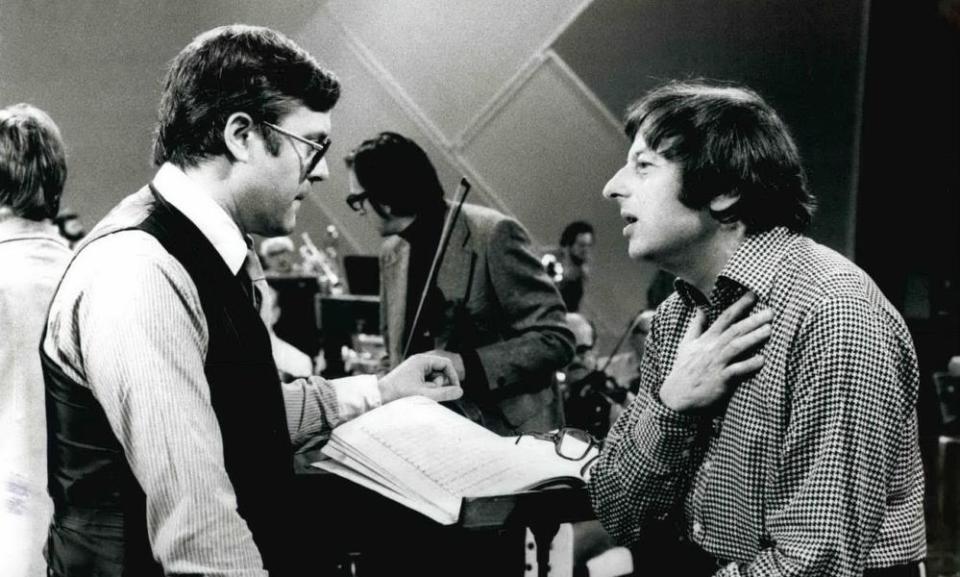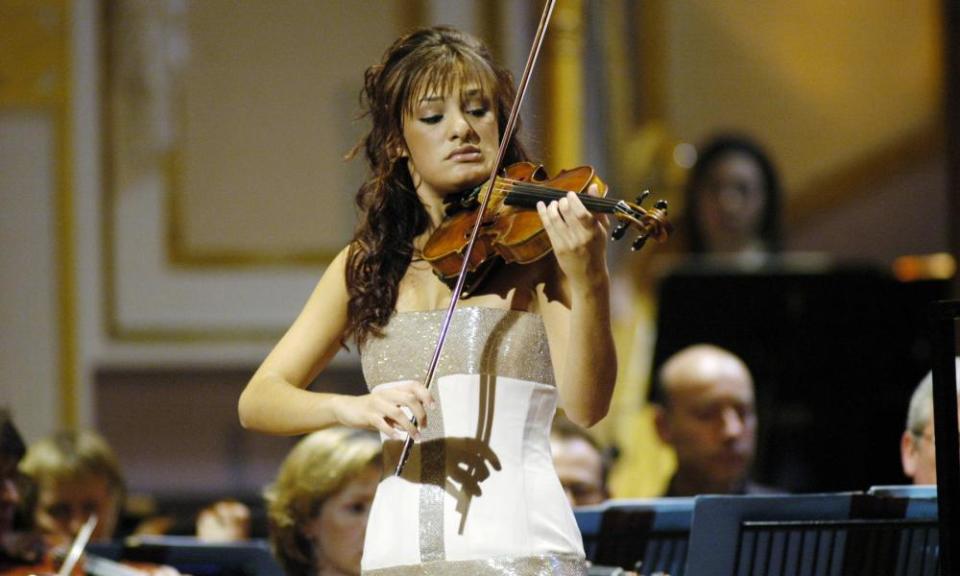BBC showing ‘negativity verging on hostility’ to classical documentaries

The BBC is failing audiences by offering classical music documentaries that lack revelation and risk, if they are made at all, according to three of the industry’s foremost film-makers.
Sir Humphrey Burton, Tony Palmer and Barrie Gavin have each made some of television’s most acclaimed arts programmes, winning international awards.
But Burton, who revolutionised the broadcasting of classical music for a mass audience in postwar Britain, told the Guardian that today’s offerings are generally “lacking in adventure, curiosity and revelation”.
“Quadruple that,” Palmer said. “Humphrey’s being polite.”
Palmer’s productions include Wagner, starring Richard Burton, which was described by the Los Angeles Times as “one of the most beautiful films ever made”.
Gavin, whose acclaimed films include collaborations with the composer Pierre Boulez, believes BBC television virtually ignores classical music today.
This month BBC Television’s longstanding head of commissioning for music, Jan Younghusband, confirmed her departure, prompting commentator Norman Lebrecht to write: “She has exerted a negativity verging on hostility towards classical documentaries, to the point where many film-makers no longer bothered to pitch ideas to the BBC.”
Gavin said that when film-makers submit ideas they are met with silence: “You realise very quickly that no reply is the answer no – in other words, it’s a self-fulfilling prophecy.”
Lamenting the BBC’s “chaotic” approach, he recalled being asked to extend a 30-minute film marking Boulez’s 80th birthday to 60 minutes, only to be told that they would run it after the composer’s death. In 2016, a decade later, Boulez died and Gavin says the BBC has never broadcast the film – even denying its existence when the Aldeburgh festival wanted to show it.
He recalled: “Jan Younghusband [told me], ‘There’s no paperwork, so the film doesn’t exist’. I said, ‘You’re talking to the man who made it, who obviously also doesn’t exist’. They found it, of course, in the video library.”
Of the BBC’s few televised offerings, Palmer said he stopped watching a documentary on Margot Fonteyn because there were factual errors.
He said he despaired over a programme on the origins of Verdi’s La Traviata, which was first performed at La Fenice opera house in Venice, as it involved a British historian being filmed in a gondola, repeatedly exclaiming “wow” and telling the presenter that she had “never ever seen La Traviata”. Palmer found himself wondering about her air fare and other costs.
He and Gavin contrasted such disappointments with the inspiration of working alongside Burton, who was BBC Television’s head of music and arts during the 1960s and 1970s, and who recalls that period within his forthcoming autobiography, titled Humphrey Burton: In My Own Time and published this month. It tells the story of his rise from humble beginnings to becoming one of the industry’s most admired broadcasters, bringing the joy of classical music to the general public through collaborations with stars such as Leonard Bernstein and Yehudi Menuhin.
Burton broke down barriers, launching seminal series such as BBC Young Musician of the Year in 1978, which discovered soloists such as the violinist Nicola Benedetti. He believes that it has since lost its “freshness”.

In the autobiography, he laments the loss of its audience as a result of its broadcast scheduling and limit of three musicians in the concerto finale: “The quality of Britain’s young musicians has not deteriorated. The downgrading of Young Musician is entirely due to the lack of care – one might even call it philistinism – of those now running BBC Television.”
He would like the BBC to take risks with new music programmes – partly to offer a “counterweight to all the cooking programmes”.
Gavin said: “The notion that music could be explained or described in documentary terms was very much Humphrey’s invention … He took risks, which of course sometimes went seriously adrift and other times didn’t, but he was very adventurous. It was a time of experiment and discovery.”
Younghusband declined to comment, but a BBC spokeswoman said: “BBC is home to an unrivalled range of classical music on TV and is the biggest commissioner in the UK. We are proud of the quality and depth of our classical TV content such as recent series Black Classical Music: The Forgotten History with Lenny Henry and Suzy Klein and Being Beethoven, commissioned by Jan Younghusband for BBC Two/Four.
“Our newly introduced commissioning structure will create a powerhouse for Arts and Classical music working closely with Alan Davey and Radio 3 to continue to bring even greater specialist depth, modern storytelling and ambition for the future.”

 Yahoo Finance
Yahoo Finance 